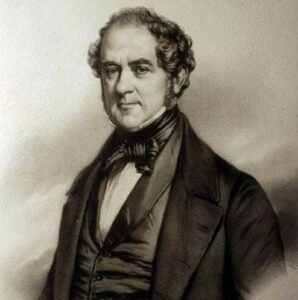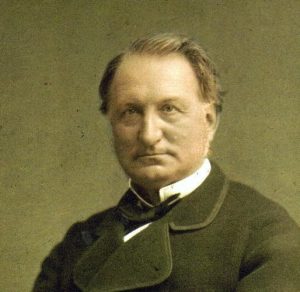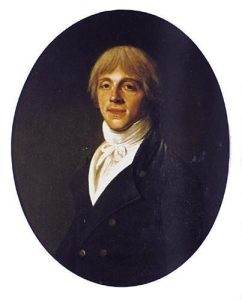From XVIIth century ironmasters...
« We then followed the Barenthal valley with its running streams. The thick forests of both hills have not been cleared. Thousands of tree trunks are left there to rot on top of each other, and countless young shoots grow off their half-decayed ancestors. While talking with some people strolling nearby, we again heard the name De Dietrich mentioned ; it had already been frequently pronounced in modest neighbourhoods with veneration and love. The answers to my questions informed me that Dietrich had been the first to successfully use the treasures of these mountains : iron, coal, and wood and, by them, to considerably increase his fortune ». Goethe, Poésie et Vérité livre X (transl. by H.Richelot, 1863).
The name De Dietrich which struck young Goethe during his trip to Alsace, belongs to a family of ironmasters whose activities go back to 1625, when the first blast furnace was lit in Niederbronn les Bains, a small village in the Vosges area where, long ago, the Romans had built thermal baths. The De Dietrich family was Protestant. They had chosen, as the founding motto of their activity, a phrase inspired by Protestant ethics : « Non sibi, sed aliis » (not for oneself, but for others). Their activities expanded rapidly and obviously that this expansion was helped by the availability of raw materials practically at ground level. Nevertheless reflection, reasoned action, and an obvious desire for knowledge (numerous members of the family were chemists) likewise played a decisive part in this expansion. It is worth noticing, for example, that in 1785, De Dietrich extracted iron ore with a concern that would be considered ecological today.
...to XVIIIth and XIXth century manufacturers
By the XVIIIth century, the De Dietrich had become both manufacturers (employing over a hundred workers) and leading citizens. At the time of the French Revolution, Jean de Dietrich, a specialist in mineralogy, was mayor of Strasburg. (Despite his open -mindedness, he was beheaded at the worst period of the Terreur).
The French revolution with its armed conflicts endangered the survival of the company that was employing 500 workers in its various ironworks. Thanks firstly to a judicious alliance with the Berkheim family and secondly to the intervention of Protestant bankers (notably de Turkheim), a normal situation will be restored under the Empire.
All along the XIXth century and beyond, the expansion of the company was to be brilliant and innovative, whether in the production of household appliances (the well-known irons, cooking stoves, saucepans, etc.), or in the building of railway lines and carriages (an activity undertaken likewise by the Koechlin family who were responsible for the construction of the Mulhouse-Thann-Strasbourg railway line completed in 1839). The firm’s culminating point was probably the project of the Lorraine-Dietrich automobile, though this activity was to be abandoned in 1904.
In favour of social progress
In 1887, the jury of the Paris Universal Exhibition awarded de Dietrich one of its grands prix for their efforts in favour of social harmony and the people’s well-being. Among many other factors, the professional training of the employees was remarkable : a truly professional school had been set up during the Second Empire ; was at the origin of the present Lycée de Dietrich (a private technical school specialising in boiler making techniques and office automation).






